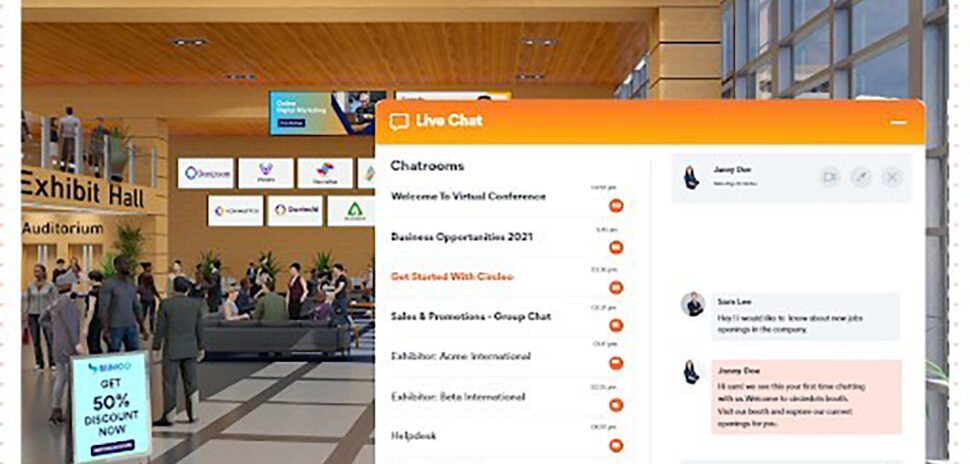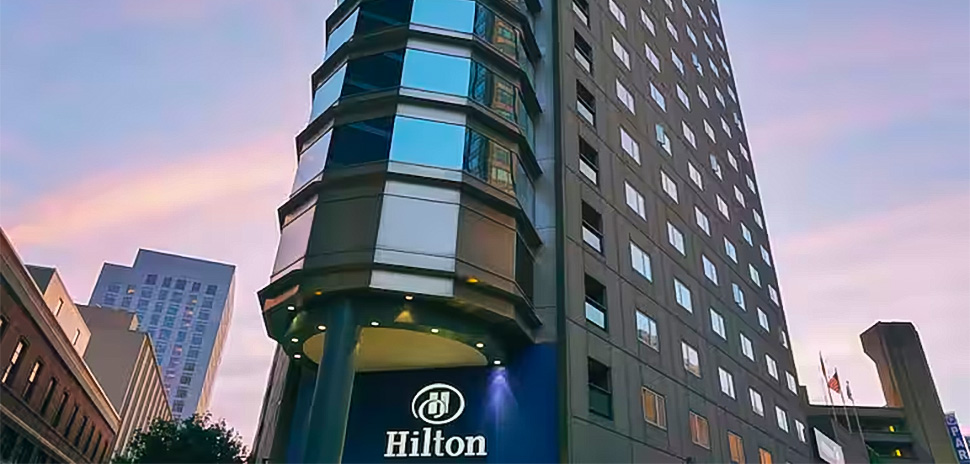“The region’s commercial real estate market has some distinctive bright spots that give us a reason to be optimistic as we head into the third quarter,” says Hillwood President Mike Berry. “The industrial sector and our multifamily program held strong during the peak of the pandemic, with the customer base remaining stable.”
Overall, industrial leasing activity and renewals have remained “very healthy,” he says. The firm’s multifamily communities have also maintained essentially pre-pandemic rent collections. But, he cautions: “This is an unprecedented period. We’re watching for a lag effect but anticipate it will be mitigated by potential relocation activity.”
Berry discusses the impact of the COVID-19 pandemic on corporate relocations in Dallas-Fort Worth, as well as long-term changes and new opportunities in the commercial real estate market in our Q&A. There are reasons for optimism, he says.
 Where was the relocation market heading prior to March of this year?
Where was the relocation market heading prior to March of this year?
The pandemic accelerated many market trends that were already underway, especially in the industrial sector and particularly in e-commerce, which has proven to be the backbone of our U.S. supply chain. Obviously, this acceleration has hit the retail sector the hardest, which was already hurting. As it relates to relocation and reshoring, before COVID-19, major brands like Stanley Black & Decker were starting to reshore a portion of their manufacturing operations from overseas due to higher tariff costs. We’ll see more of this in the near future as companies reshore more operations to minimize potential supply chain disruptions. And, certainly, we’ll see this occurring in the manufacturing of goods important to national security and public health.
How has the pandemic impacted logistics and supply chain sectors in the region? Are you seeing some businesses switching from international to domestic sources as a focus for production?
Disruptions to the nation’s essential supply chains during the pandemic are causing a lot of companies to consider reshoring, and even relocating their domestic manufacturing and distribution to more central geographic locations. They are looking at Texas, and North Texas in particular, because of our business-friendly environment, highly skilled workforce, and our multimodal transportation options. The region also stands apart in its ability to offer space for corporate offices and manufacturing or distribution facilities in close proximity, which makes it easier for companies to quickly troubleshoot and address any issues.
What new challenges and opportunities are you seeing in the current market?
Hillwood sees some great opportunities in the single-family housing market. There is still a lot of demand for housing in North Texas as companies continue relocating to the region, and we expect demand to further increase as fallout from the pandemic leads more families to choose suburban homes with more space over urban density. The low-interest rates make this an ideal time to refinance or to buy a home, especially for first-time homebuyers who are not trying to sell a home.
Are there reasons for optimism in the balance of 2020 and looking to 2021?
There are certainly reasons to be optimistic as we approach the next 12 to 18 months. Historically, the North Texas commercial real estate market has experienced relatively fast recoveries, and although this downturn comes with unique challenges, North Texas has a lot working in our favor. Our central geographic location, transportation options, workforce, and business-friendly environment continue attracting new business opportunities. North Texas also offers affordable housing options and plenty of suburban communities that will allow families to have more space in the era of social distancing. From an office market perspective, we’re unique in that we have available land to build campus-style facilities, like the Charles Schwab headquarters. These types of facilities provide a horizontal footprint and can be customized to accommodate greater space between employees, outdoor work areas, and the latest in automation and clean building technologies.
How is Hillwood adapting as you seek prospective tenants in this season of uncertainty?
These are unprecedented times, and the speed at which everything changed has resulted in our team utilizing technology like never before. I’ve been very impressed with how people have adapted so quickly to doing business through Zoom, WebEx, Microsoft Teams, or other videoconferencing platforms. While it’s not the same as meeting a prospect or customer in person, we’ve leveraged technology that’s been around for quite a while, and finally figured out how to use it in our day-to-day business lives. We’re still building new relationships and reinforcing established ones, but we’re also being very efficient with our time, since travel between offices has become limited. I’m looking forward to the day when we can return to normal, but we’ll take some of this period’s best practices and incorporate them into how we do business going forward.
Do you see any long-term changes in your business and the needs of your customers prompted by the pandemic?
Technology and space designs that support employee safety and remote working are long-term changes we’re seeing across each of our business units. Particularly in the office sector, where touchless technology, such as automatic doors, touchless locks, motion sensor lights, temperature controls, and even voice-activated technology are becoming standard features. Layouts that have been popular during the past 20 years, centered-around collaborative workspaces, are giving way to more traditional ones (with partitions). However, the new spaces are designed to make the transition to the employee’s home office more seamless. Work stations in manufacturing and industrial spaces are seeing greater separation between employees, with robotic systems being incorporated. In the residential sector, we’re seeing more demand for suburban housing with an additional room being designed specifically to serve as a home office space.
What sectors are more pandemic proof? Where do you anticipate growth?
Sectors that cater to our nation’s essential services are the most pandemic proof, including food processing and manufacturing, medical equipment manufacturing, and distribution and logistics services. Our increased reliance on e-commerce during the pandemic creates a growth opportunity as companies expand to serve online customers more efficiently. Data centers are another pandemic-proof sector where there is a growth opportunity as we demand more bandwidth and storage for remote working and online learning. To sum everything up, improvements in technology and broadband connectivity have never been more essential.
A version of this story first published in the Summer 2020 edition of the Dallas-Fort Worth Real Estate Review.
Sandra Engelland contributed to this report.
Read more on how DFW is a place for the future from these commercial real estate experts:
‘There Will be New Opportunities’
Shane Shepard, Economic Development Director, City of Lancaster
‘It Is Reasonable To Expect That the Area Will Fare Especially Well’
Ray Perryman, The Perryman Group
Site Selection Group Partner Sums Up the DFW Commercial Real Estate Market in 8 Words
Lee M. Wagner, Partner, Corporate Real Estate Services, Site Selection Group
Inquiries by economic development agencies “are up by a significant multiple over this period last year”
Joel Pustmueller, Managing Director, Brokerage, JLL
‘We’re Seeing More Companies Investing in Their Existing Footprint’
Beth Bowman, President and CEO of Irving Economic Development Partnership
‘We Believe Cities Like Frisco Will Benefit by the Return of Growth To the Suburbs’
Jason Ford, Economic Developer and Vice President, Frisco EDC
The Future Is Bright for Dallas-Fort Worth Corporate Relocations and Consolidations
Jeff Ellerman, Vice Chairman, CBRE
Read the digital edition of Dallas Innovates’ sister publication, the Real Estate Review, on Issuu.
Sign up for the digital alert here.
![]()
Get on the list.
Dallas Innovates, every day.
Sign up to keep your eye on what’s new and next in Dallas-Fort Worth, every day.






































































